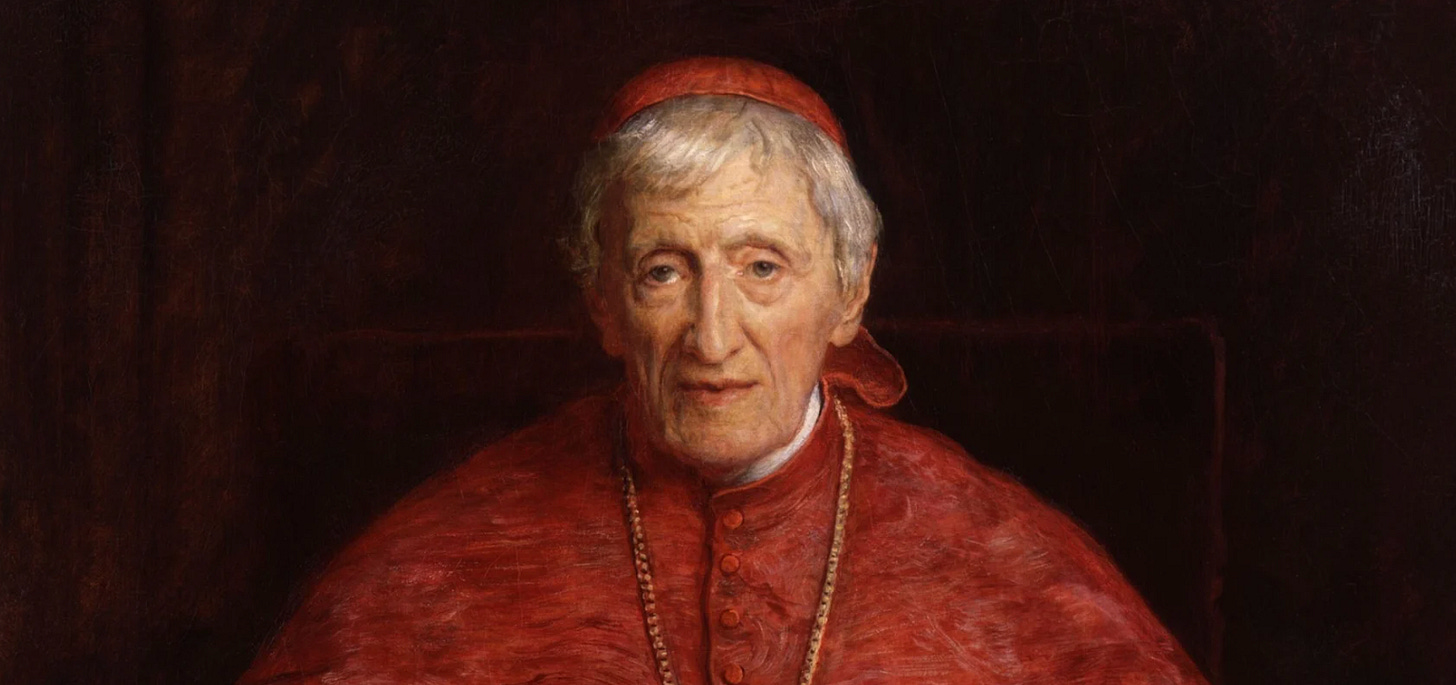Why Newman should be the 'Doctor of Conscience'
Conscience; delicate, fitful, so easily puzzled, obscured, perverted, so subtle in its argumentative methods, so impressible by education, so biased by pride and passion, so unsteady in its course.
This post is written by Journalist and Author Simon Caldwell for Catholic Unscripted.
It is no surprise that Pope Leo XIV has announced that soon he will formally declare St John Henry Newman to be the 38th Doctor of the Church.
The Chicago-born Pontiff was, after all, among the American bishops who only a few years ago joined the bishops of England and Wales in petitioning Pope Francis to recognise the universal significance of the teachings of the Victorian cardinal following his canonisation in October 2019.
Such status will place Newman among the Church Fathers whom he so deeply admired in his own lifetime and alongside other such luminaries as Teresa of Avila, Thomas Aquinas, Bernard of Clairvaux, John of the Cross and Catherine of Sienna.
Often doctors of the Church are awarded secondary titles to indicate the virtue or teachings in which they excelled. St Augustine of Hippo, for example, is the “Doctor of Grace”, St Thomas is the “Angelic Doctor”, St Francis de Sales is the “Doctor of Charity”, St Anthony of Padua the “Evangelical Doctor”, and St Thérèse of Lisieux is the “Doctor of Love”, and so on.
On the eve of Newman’s canonisation, Archbishop Anthony Fisher of Sydney told a symposium at the Angelicum University in Rome that Newman should be honoured with the specific title of “Doctor of Conscience”.
In a talk called “Conscience, Relativism and Truth: The Witness of Newman”, Archbishop Fisher argued that the saint’s insights into the function and meaning of conscience “could not be more timely” given widespread moral confusion in the western world.
He said Newman’s theology of conscience offered an antidote to the moral relativism that was convulsing many societies.
Archbishop Fisher explained that to Newman conscience was not an “inbuilt satnav” or like the good angel who stood on the shoulder of Fred Flintstone and whispered advice into his ear but a key element of the mind, like perception, reasoning and judgement, and that its “primary function was the rational judgement of the moral senses that interprets human nature”.
“In our day, when an intellectual and moral relativism threatens to sap the very foundations of our society, Newman reminds us that as men and women made in the image and likeness of God we were created to know the truth and find in that truth the ultimate freedom and deepest fulfilment,” said Archbishop Fisher.




